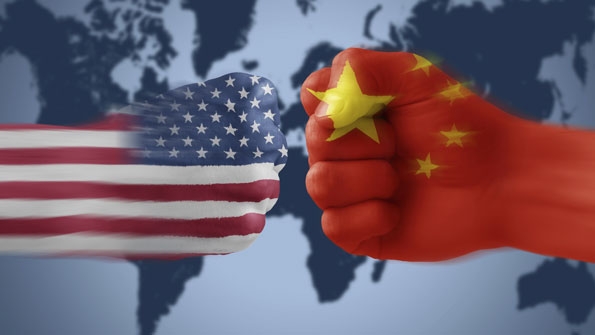


[File photo]
A Chinese manufacturing tycoon’s decision to build factories in the U.S. has sparked fierce debate among the Chinese public, with many media outlets and scholars accusing China’s tax system of crippling the country’s global competitiveness in manufacturing.
In an interview with Yican.com in December, Cao Dewang, the chairman of Fujian-based Fuyao Glass Industry Group, said he planned to spend $1 billion building factories in the U.S., as China’s manufacturing industry is stagnant due to high taxes and rising labor costs. As the world’s second largest automotive glass supplier, the company has selected Moraine, Ohio to host its North American after-market automotive glass manufacturing, which is expected to result in 2,500 new jobs.
The hashtag “CaoTalksAboutManufacturing” has garnered over 6 million page views as of press time, with many scholars and netizens worried that the China is losing its grip on the manufacturing industry.
Cao is not the first entrepreneur to transfer business abroad. Li Ka-shing, the richest person in Asia, has been trimming his property portfolio in China since 2011, switching his focus to European and other foreign markets.
The decision of Chinese manufacturers to shift focus to foreign markets is widely believed to be connected to severe tax burdens. In addition to a 25 percent corporate income tax, Chinese companies still have to pay other taxes including added-value tax, which can be over 10 percent. For the past decade, tax revenue increases in China have generally been higher than the country’s GDP growth rate, according to a commentary published on Dec. 19 by Xiakedao, a public WeChat account operated by People’s Daily.
“Chinese companies have to pay comprehensive taxes of over 50 percent, ranking fourth among the 21 APEC economies. Technically, after paying taxes, Chinese companies are on the verge of death,” said Li Weiguang, a professor at Tianjin University of Finance and Economics.
Apart from high taxes in China, skyrocketing labor and energy costs have also eroded the country's competitiveness in manufacturing. According to a report from BCG, a Boston consultancy, the cost of natural gas has soared by an estimated 138 percent in China; by contrast, prices for natural gas have fallen by as much as 35 percent since 2004 in North America. BCG projected that by the end of 2018, it will be 2 to 3 percent cheaper to manufacture products in the U.S. than in China.
Cao’s decision, together with U.S. President-elect Donald Trump’s efforts to bring manufacturing back to the U.S., have many Chinese experts and entrepreneurs worried. A number of scholars have proposed reforming the country’s tax system, as well as lowering energy costs.
 Fire brigade in Shanghai holds group wedding
Fire brigade in Shanghai holds group wedding Tourists enjoy ice sculptures in Datan Town, north China
Tourists enjoy ice sculptures in Datan Town, north China Sunset scenery of Dayan Pagoda in Xi'an
Sunset scenery of Dayan Pagoda in Xi'an Tourists have fun at scenic spot in Nanlong Town, NW China
Tourists have fun at scenic spot in Nanlong Town, NW China Harbin attracts tourists by making best use of ice in winter
Harbin attracts tourists by making best use of ice in winter In pics: FIS Alpine Ski Women's World Cup Slalom
In pics: FIS Alpine Ski Women's World Cup Slalom Black-necked cranes rest at reservoir in Lhunzhub County, Lhasa
Black-necked cranes rest at reservoir in Lhunzhub County, Lhasa China's FAST telescope will be available to foreign scientists in April
China's FAST telescope will be available to foreign scientists in April "She power" plays indispensable role in poverty alleviation
"She power" plays indispensable role in poverty alleviation Top 10 world news events of People's Daily in 2020
Top 10 world news events of People's Daily in 2020 Top 10 China news events of People's Daily in 2020
Top 10 China news events of People's Daily in 2020 Top 10 media buzzwords of 2020
Top 10 media buzzwords of 2020 Year-ender:10 major tourism stories of 2020
Year-ender:10 major tourism stories of 2020 No interference in Venezuelan issues
No interference in Venezuelan issues
 Biz prepares for trade spat
Biz prepares for trade spat
 Broadcasting Continent
Broadcasting Continent Australia wins Chinese CEOs as US loses
Australia wins Chinese CEOs as US loses